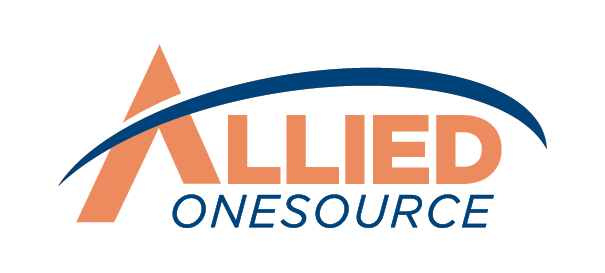Cultivating Perseverance as A Key Leadership Skill
We've all heard Thomas Edison's famous words: "I have not failed. I've just found 10,000 ways that won't work." His persistence eventually led to the invention of the light bulb. In the same way, successful leaders are more than their achievements but how they handle failures.
In leadership and life, failures provide unique opportunities for growth and learning that we wouldn't encounter if everything were always easy. But what does successful persistence look like? How can perseverance be used in areas such as finding a new job, excelling in a new role, or advancing your career?
Let's look at the key traits of a persevering leader and how you can develop your own attitude and skills to support perseverance in your career.
Perseverance: Driving Force Behind Great Leadership
Imagine stepping into a new leadership role and finding a mess left behind by someone else. That's what happens to many executives. Over 50 percent of executives fail within their first 18 months in a new leadership role.¹ This often happens because they inherit difficult situations created by others.
This emphasizes why perseverance matters. When faced with tough situations, leaders who persevere don't stop—they keep going, never give up, and often achieve success in the end. They set themselves apart as resilient leaders, able to guide their organizations through adversity.
During those times, team members will look to you for guidance on how to react and overcome what stands in the way of success. When you demonstrate perseverance, you can inspire your team to stay determined and work through difficulties together. Your level of determination can directly impact your team's success in overcoming obstacles and emerging stronger in the end.
Read More: Strategic Staffing: Why Employers Now Prefer Skills Over Diplomas When Hiring
The Profile of a Persistent Leader
Persevering leaders require specific qualities to drive their organizations, motivate their employees, and push themselves forward. Persistent leaders also embody a growth mindset. They believe their capabilities can be developed through dedication and hard work.
For example, if a certain recruitment strategy isn't bringing in the right candidates, persistent leaders will set clear new objectives and try a different approach, exemplifying their growth mindset. We've pinpointed three particularly important traits that enable ordinary leaders to become exceptional role models by enhancing their capacity to persevere.
- A sense of purpose. As a leader, you need a clear sense of purpose. You should deeply care about and believe in it, aligning with your values. Your purpose keeps you motivated and drives you forward, even when times get tough.
- Strong desire. To reach your goals, you have to truly want them. You need to be motivated by your drive to advance your team and organization forward, regardless of obstacles. While some see desire as something you're born with, you can develop it through professional and personal growth programs.
- Belief in oneself. Simply wanting something isn't always sufficient. You must also believe you can achieve it. Leaders who lack confidence in their abilities may hesitate to make crucial decisions for their organization when it matters most. Having the confidence to trust your judgment and make tough decisions, even when they're challenging, makes any achievement possible.
Read More: Here's Why Soft Skills Matter More in a Digital World
Why Perseverance Makes Better Leaders
Here are some reasons persistent leaders achieve long-term objectives and maintain focus and purpose on everyday tasks.
They're skilled at reframing.
Challenges and failures are part of the journey. How leaders handle these situations makes a difference. An important aspect of a persistent mindset is approaching difficult situations without losing focus on your goals. This approach resembles radical acceptance, a mindfulness practice where you accept things as they are instead of dwelling on the past.
Leaders who embrace radical acceptance understand the importance of framing daily tasks focusing on progress rather than perfection. They are skilled at reassessing challenges and perceived failures, turning setbacks into opportunities.
For these leaders, challenges in a team project become a chance to improve their collaboration skills, or not getting the job becomes an opportunity to enhance their qualifications and presentation skills. Persistent leaders view failure in a different light. They transform traditional negatives into forward-looking positives by reframing them.
They're open about the effort needed to persevere.
Leaders often view persistence as a blend of hard work, focus, and adaptability, driven by determination. As a persistent leader, it is important to define what persistence means for yourself and your organization.
For example, you might start by asking:
- Which characteristics show persistence in me?
- Which qualities will best illustrate persistence to my team?
- What persistence-related attributes will best match our department goals?
Once you've defined persistence, the next step for a persistent leader is to decide on a teamwide understanding of "success." This is important because it's easier to encourage a culture of persistence when everyone knows what they're working towards. If success is unclear, motivation will be, too, making it hard for your team to stay resilient and reach company goals.
Questions to think about when defining success might include:
- What does success mean for my team?
- What are our short-term and long-term goals?
- How do we define success when we face challenges or failures?
Knowing when to adapt.
A good manager doesn't let persistence become stubbornness. They have a clear goal but are open to different ways to achieve it. They're willing to try new things and change direction if needed and they know when to move on.
For instance, if a certain recruitment strategy isn't bringing in the right candidates, persistent leaders will stop and try a different approach. Similarly, if current onboarding methods aren't aligning with long-term company goals, they'll help find more effective ways to welcome and train new hires.
Persistent leaders also understand when it's time to stop and reassess. They acknowledge that sometimes, doing nothing is the wisest choice, and they can shift their focus when needed. Why? Because they know that the path to success isn't always straightforward and that being flexible can lead to better results in the long run.
So, while they stay focused on their goals, they're also open to changing how they get there.
They use persistence to earn trust and motivate others.
A reliable leader sets the tone for consistency. Their actions influence those around them, so when they show dedication to success, their team is likely to do the same.
When an IT project manager continually pushes through obstacles and setbacks to deliver projects on time and within budget, it motivates the team to persist in their efforts. This can establish a culture of perseverance within the team, which may then extend to other departments and throughout the organization.
But there's more to persistence. It also means being humble. Leaders who are focused on their goals will do whatever it takes to achieve them, even if it means putting their ego aside. They're open to new ideas and opinions, and they're not afraid to seek advice from others to explore different strategies.
They'll also ask for help from coworkers and are always ready to prioritize the team over themselves. This idea reflects Microsoft CEO Satya Nadella's belief in learning from others, known as the "The Learn-It-All Does Better Than the Know-It-All" principle.² This emphasizes effective leadership skills, showing the importance of continuous learning, humility, respect, and trust between the leader and their team.
Read More: Command and Inspire: Navigating the Nuances of Leadership vs. Management
They balance determination and perspective.
Another characteristic of persistence is patience. Persistent leaders who always keep their ultimate goals in mind are less likely to prioritize short-term gains over long-term success. They consider company endeavors long-term commitments and prioritize delayed gratification over immediate rewards.
As a result, persistent leaders often make deliberate and thoughtful decisions, carefully considering all aspects of an issue before taking action.
Resilient leaders remain committed to their long-term goals and stay focused on the broader vision. Short-term rewards or distractions won't sway them from their long-term objectives. They persistently work towards keeping things on track, showing dedication even amidst temporary temptations or ongoing distractions.
ALLIED ONESOURCE UNDERSTANDS THE IMPORTANCE OF PERSEVERANCE IN THE WORKPLACE
Allied OneSource recognizes that employers are increasingly seeking candidates who possess strong technical skills and demonstrate the ability to overcome challenges and drive results through sheer perseverance. That’s why we go beyond simply matching you with job openings.
We take the time to understand your unique strengths, experiences, and career goals. This allows us to connect you with opportunities who appreciate and value perseverance as a critical leadership skill. Don't let opportunities pass you by–contact us today and seize the chance to connect with employers who value what you bring to the table.
References
- Carucci, Ron. “How Great Leaders Persevere When Things Are in a Shambles.” Forbes, www.forbes.com/sites/roncarucci/2020/02/10/how-great-leaders-persevere-when-things-are-in-a-shambles/?sh=26650b312ce3.
- “Satya Nadella: “the Learn-It-All Does Better than the Know-It-All.”” WSJ, www.wsj.com/video/satya-nadella-the-learn-it-all-does-better-than-the-know-it-all/D8BC205C-D7F5-423E-8A41-0E921E86597C.










